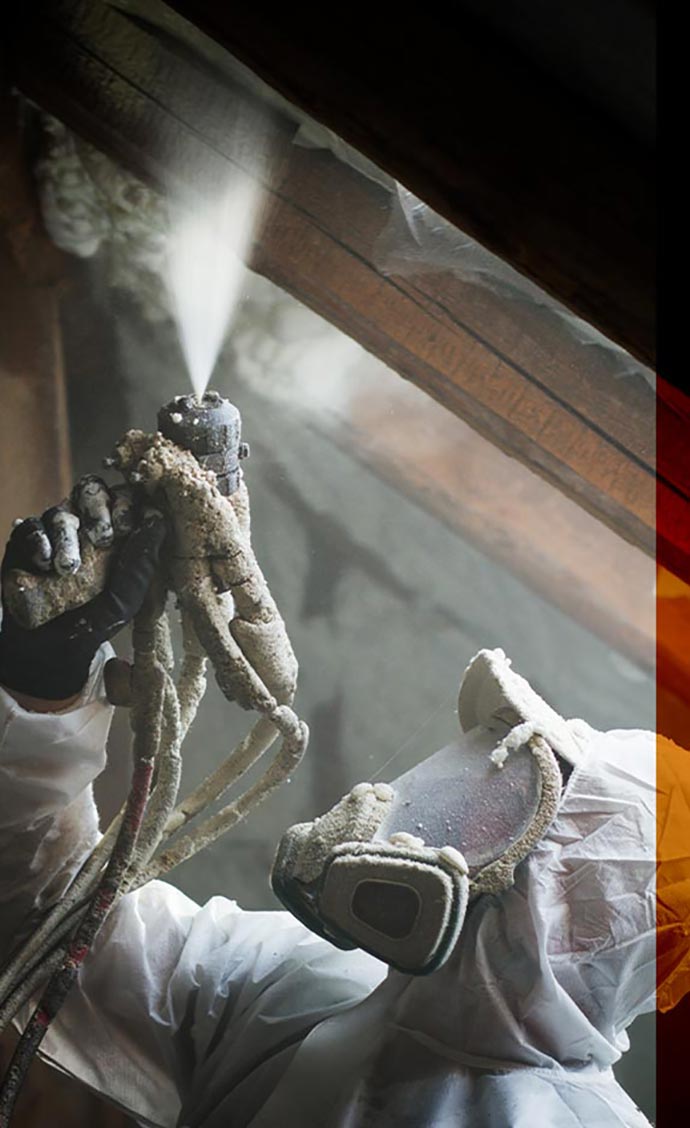



"*" indicates required fields
We insulate your basement wall with rigid foam insulation, which is best for your basement’s concrete walls. Rigid foam wall insulation doesn’t absorb water and can’t be damaged by it, unlike fiberglass batts. Moreover, the rigid foam doesn’t compress, fall out of place, or lose R-value.
When it comes to basement wall insulation, we highly recommend the use of a wall insulation system. These innovative panels have been specifically designed to provide optimal insulation while also addressing common concerns such as mold, mildew, and rot.
The panels are crafted using inorganic materials, ensuring that they do not support the growth of mold, mildew, or rot. This is a crucial feature for basement environments where moisture can often be a concern. By using inorganic materials, the panels offer long-term protection and help maintain a healthier living space.
One of the key advantages is its direct attachment to the basement walls. The panels are designed to be affixed directly to the existing basement walls, providing a seamless and secure insulation solution. Unlike traditional methods where studs are placed against the concrete walls, our system integrates the studs with the foam insulation, eliminating any direct contact between the studs and the basement walls. This design minimizes the risk of thermal bridging and enhances the overall insulation performance.
Furthermore, each panel is equipped with built-in wiring channels. These channels offer a convenient and organized way to route electrical wiring throughout the basement, making it easier to install lighting, outlets, and other electrical components. By incorporating these wiring channels into the panels, the system streamlines the insulation and electrical installation process, saving time and reducing potential hazards.
To ensure a secure installation, the panels come with necessary steel flanges for attaching the wallboard. These steel flanges provide structural support and help to ensure a durable and reliable installation. With the inclusion of steel flanges, the panels can withstand the test of time and maintain their insulation performance for years to come.
Insulating basement walls offers numerous benefits that enhance the comfort, functionality, and energy efficiency of your home.
By investing in basement wall insulation, you not only improve the overall comfort and usability of your basement but also enjoy the benefits of a healthier living environment, lower energy costs, and enhanced thermal performance throughout your home. It is a worthwhile investment that brings long-term value, comfort, and savings.
Reed’s Home Solutions is your local expert in insulation. We inspect your basement without any cost and assess your insulation problems. We provide you with wall insulation for your basement and help prevent moisture, mold, and foul odors. If you are interested in our basement insulation services, give us a call or contact us online for a spray foam consultation and Free Estimate. We serve customers in Apple Grove, Hiltons, Bevinsville, Raven, and other cities in West Virginia, Ohio, and Kentucky.
Insulating your basement walls offers several benefits. Firstly, it improves the overall comfort of your home by regulating temperatures in both the basement and upper living spaces. Insulation also helps prevent mold and mildew growth by controlling moisture levels. Additionally, basement wall insulation stops unwanted air infiltration, reducing heat loss and lowering heating and cooling costs. Lastly, insulated basement walls make the space more usable, providing an additional living area for your family.
Yes, properly insulating your basement walls can help prevent moisture problems. Insulation acts as a barrier against water vapor and condensation, reducing the risk of moisture accumulation. However, it’s important to address any existing moisture issues before insulating. Proper drainage, foundation repairs, and waterproofing measures may be necessary to ensure a dry and suitable environment for insulation.
While some homeowners may choose to tackle basement wall insulation as a DIY project, it is generally recommended to hire a professional insulation contractor. Insulating basement walls requires knowledge of building codes, an understanding of moisture management, and expertise in proper insulation techniques. A professional contractor can ensure the insulation is installed correctly, taking into account factors like vapor barriers, air sealing, and moisture control. Additionally, professional installation can help maximize insulation performance and avoid potential issues or mistakes that may occur with DIY installations.